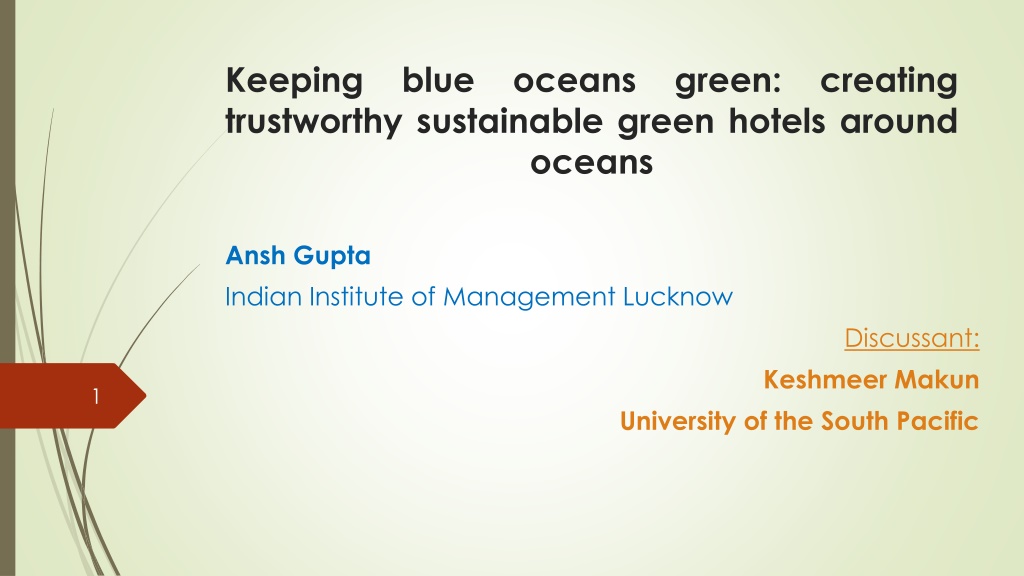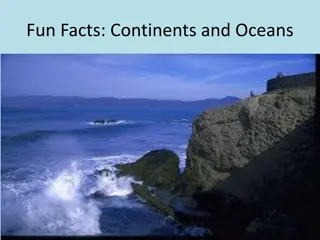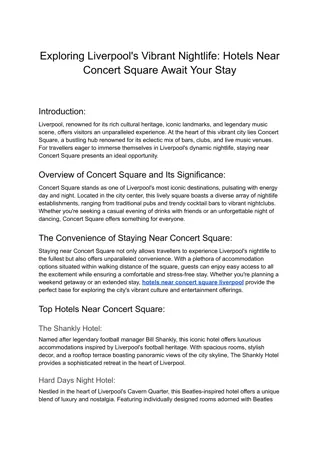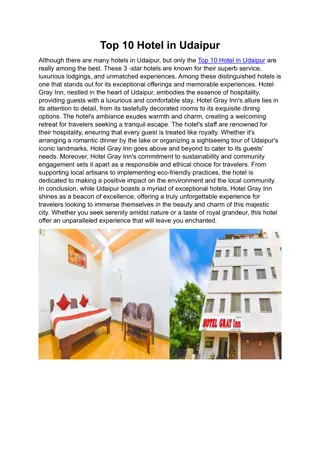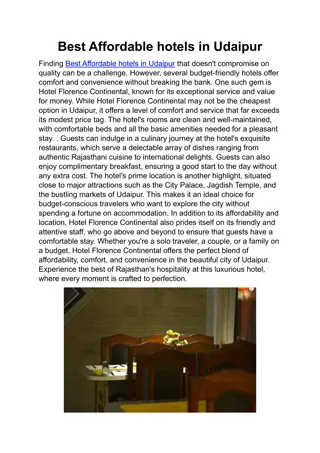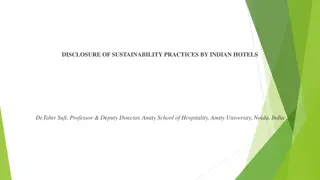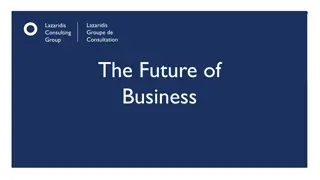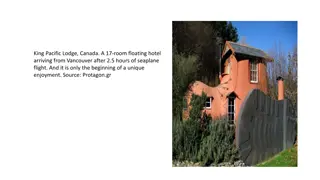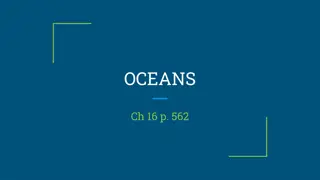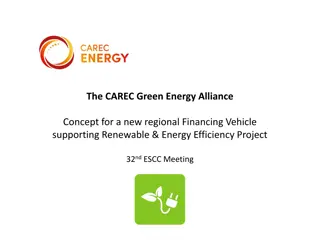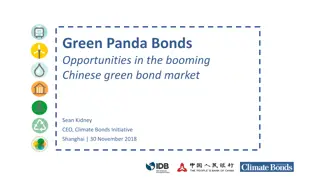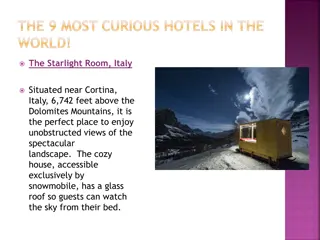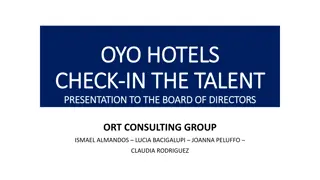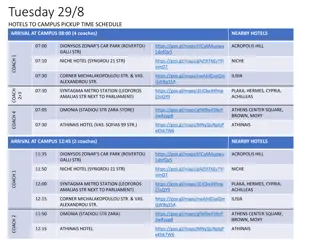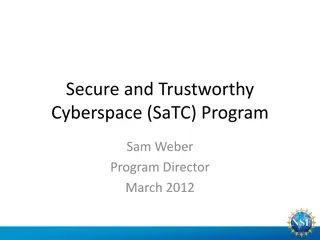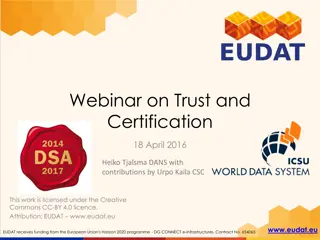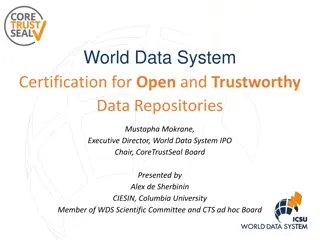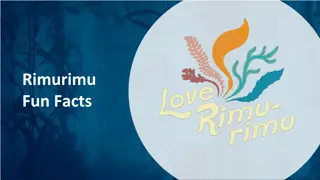Creating Trustworthy Green Hotels Around Oceans
This paper examines the impact of green service attributes on consumer trust in sustainable green hotels around oceans. The study focuses on 12 certified green hotels in India and explores how Green Service Encounters influence consumer trust and re-patronage intention. The findings reveal that trust in hotels' green service claims enhances re-patronage intention, especially for business travelers and those with high environmental values.
Download Presentation

Please find below an Image/Link to download the presentation.
The content on the website is provided AS IS for your information and personal use only. It may not be sold, licensed, or shared on other websites without obtaining consent from the author.If you encounter any issues during the download, it is possible that the publisher has removed the file from their server.
You are allowed to download the files provided on this website for personal or commercial use, subject to the condition that they are used lawfully. All files are the property of their respective owners.
The content on the website is provided AS IS for your information and personal use only. It may not be sold, licensed, or shared on other websites without obtaining consent from the author.
E N D
Presentation Transcript
Keeping blue oceans green: creating trustworthy sustainable green hotels around oceans Ansh Gupta Indian Institute of Management Lucknow Discussant: Keshmeer Makun 1 University of the South Pacific
Summary of this paper: 2 This paper examines the effect of hotels green service attributes on consumer trust and resulting re-patronage intention. The author considers 12 certified green hotels around oceans in India. These hotels are from two metro and one non-metro cities. The author conducted a survey (with designed questionnaire) to collect relevant data. To examine the aforementioned objective the author also include the role of environmental values and purpose of travel. Unlike Scale framework, the authors use alternative framework proposed by Kreidler and Mathews (2009) based on Stimulus-organism-response (S-O-R) framework. The empirical results show that Green Service Encounters (GSE)brings consumer trust in green claims and that consumers trust in hotels green service claims enhances re-patronage intention. The results also show that impact of GSE on trust is greater for business travellers and that the impact of GSE on trust is greater for travellers with high environmental values.
My overall comment: 3 Informative and it is a interesting contribution to green/sustainable ocean tourism and hospitality industry. Using various available conceptual framework the paper conceptualizes a unique construct of GSE that is more inclusive and representative of the objective. Research hypothesis are clearly defined and subsequently answered in discussion. The paper provides theoretical contribution, policy implication and limitations, and future research direction
Specific Comments and suggestions for improvement 4 The paper seems to be very lengthy (48 pages and about 12 thousand words) The acronyms needs to be defined first in the paper. (exp: for S-O-R on page 3 and 5) In Table 7, on interaction terms, I did not understand the logic when you imply that a business travel leads to higher trust ..and so does environment values.. why not a leisure travel? Some clarity needed on interpretation of the results. It would be nice if author makes some comparison of the findings with other similar works and perhaps how it differs. It is not clear how author obtain data on travel purpose and environmental values as it its not shown in Table 3 Item Descriptives
5 Sample hotels: only from around the ocean cities. Inference based on this on other hotels could be biased. Response rate is crucial parameter in sampling. It is below 50% in the paper. Under representation of the target population - Hotels? The author selected the control variables of travel purpose and environmental values in GSE and trust/re-patronage nexus. In the theoretical literature, there are many crucial indicators like food quality, service delivery, etc. do matter for trust and re-patronage intention. The omission of those important variables may mislead the results too. For Moderation test using HMRA - Is it possible to check this using some other methodologies to ensure robustness of the findings.
6 Thank you
